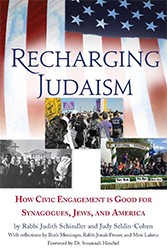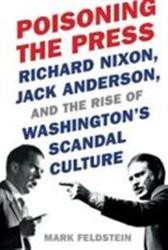A good deal of attention has been focused in recent years onthe resurgence of anti- Semitism in Europe, the United States, and theMiddle East. Since the collapse of the Oslo peace accords in 2000 andthe launching of a terrorist war against Israel by Hamas and otherPalestinian groups, hostility to Jews and especially to the Jewish statehas escalated in ways that few foresaw. The resurgence of anti-Semitism may not have been caused by these events, but it has beenfueled by them and has intensified since the 9/11 strikes in New Yorkand Washington, D.C. and the wars that have followed in Afghanistan andIraq. This persistent prejudice is clearly brewing in the world again.Across Europe there have been a series of violent assaults against Jewsand Jewish institutions on a scale not seen since World War II.Anti-Semitism can be detected on the political right, and as BernardHarrison so ably demonstrates on virtually every page of his importantbook, it has also found a home on the political left in a fierceanti-Zionism that negates the very right of Israel to exist andresembles traditional anti-Semitism at its worst. The charge often heardin Europe, and to some degree in America in the press, among academicsand senior intellectuals and politicians, during protests, equatingIsraelis with Nazis and Zionism with Nazism and racism is emblematic ofthese shrill attacks. In the Muslim world, particularly in its Jihadistversions, there is a hatred of Jews that seems to be at the core of itsideology and world view. The belief in an international Jewishconspiracy is only one of the several classic myths about Jews that arecurrently widely believed in the Muslim world. Jewish-Zionists arebehind much of what ails Islam today, this irrational theory claims, andalarmingly “The Protocols of the Elders of Zion” is now enjoying a newpopularity and is reaching millions of new consumers.
The three books reviewed here provide some welcome light andanalysis on this murky, but alarming problem. Kenneth Stern, theAmerican Jewish Committee’s expert on anti-Semitism since 1989, offers Anti-Semitism Today,a concise account and analysis of the new global anti-Semitism. Hewrites with the confidence and commitment of someone who has been on thefrontlines of the fight against anti-Semitism, but his passion istempered by reflection and evidence. In addition to describing what ishappening in the world, his most important contributions are hischapters on the challenges being faced on the American campus, and hissuggestions for combating anti- Semitism and the need to develop newstrategies and early warning measurements. The book is a primer for thatstruggle.
In an exceptionally well-crafted book, The Resurgence of Anti-Semitism: Jews, Israel, and Liberal Opinion,Bernard Harrison, a distinguished British philosopher, examines why thepolitical left has become so comfortable with anti-Semitism newlydressed up as anti-Zionism. He demonstrates how it has spread to infect“left-liberal” discourse on many other levels and he explores how theanti-racist left finds itself, ironically, in the thick of fomenting oneof the earliest forms of racism. As Andrei Markovits does as well in Uncouth Nation,Harrison shows that anti- Semitism in Britain and in Europe generallyis connected to anti-Americanism and is gripped by an obsession withanti-Zionism which helps foster European identity, assuage old guiltsabout historic European anti-Semitism and has the added benefit of beingcloaked in the rhetoric of moral virtue itself. Britain is today secondonly to France as the site of the most numerous anti-Semitic incidents.In addition to the hundreds of annual assaults and desecrations,Britain has been at the forefront of the anti-Israel boycott anddivestment campaigns led by the Church of England and the country’slargest teachers’ union. Harrison spends much of the book debunking thefalse charges levied against Jews and Israel and exposing the bogusnature of the accusatory rhetoric now commonly employed against Israelsuch as “apartheid,” “racism,” “fascism,” “genocide,” and “colonialism.”
Harrison, Markovits, and Stern reveal the nature ofcontemporary anti-Semitism, the groups and cultures most susceptible tothese ideas, what function they play for them, and why anti-Semitism isemerging in force now. They are required reading for all who fear thatthe threat is real and who want to help devise the best strategy tofight it.





